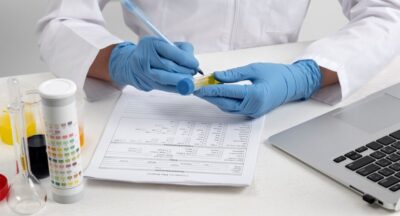
Do Shrooms Appear on Standard Drug Tests? Explained
Drug testing is used in many fields. It protects safety, builds trust, and ensures compliance with rules. From workplaces to schools and legal systems, testing is part of daily checks.
One common question is about mushrooms, often called “shrooms.” These are not regular mushrooms used for food. They contain psilocybin, a hallucinogen. Psilocybin changes into psilocin inside the body. Psilocin alters mood, thoughts, and behavior. It can create hallucinations and strong mental effects.
This article explains if shrooms appear on standard drug tests. It also shows how this connects to DOT testing rules and the DOT SAP program.
What Do Standard Drug Tests Check?
Most workplaces use two common types of tests: the 5-panel test and the 10-panel test.
5-Panel Test checks for:
- Marijuana (THC)
- Cocaine
- Opiates (heroin, codeine, morphine)
- Amphetamines (including meth)
- PCP (phencyclidine)
10-Panel Test adds more drugs, such as:
- Benzodiazepines
- Barbiturates
- Methadone
- Quaaludes (methaqualone)
- Propoxyphene
Shrooms are not on these lists. That means psilocybin is not part of the standard drug test that most people take.
Can Shrooms Still Be Detected?
Yes, they can. But not in routine checks. Special lab tests are required. These are not usually part of workplace testing unless there is a specific reason.
Methods include:
- Urine test: Detects psilocybin for up to 24 hours.
- Blood test: Very short window, only a few hours.
- Hair test: Can show use for months, but it is rare and costly.
Because detection is difficult and expensive, most employers do not add it to normal panels.
Why Shrooms Are Rarely Tested?
There are three main reasons:
- Cost – Adding new substances makes tests more expensive.
- Short window – Psilocybin clears quickly from the body.
- Lower abuse rates – Other drugs are more common, so testing focuses there.
This is why most standard workplace drug panels do not search for shrooms.
The DOT and Drug Testing
The Department of Transportation (DOT) has stricter rules. Workers in trucking, aviation, transit, and rail must follow these. Safety is the top priority.
DOT requires a 5-panel urine test. It looks for: marijuana, cocaine, opiates, amphetamines, and PCP. Shrooms are not included.
But that does not mean they are allowed. Psilocybin is still illegal under federal law. If a DOT employee is caught using it, even without a positive test, they may face removal from duty.
DOT Substance Abuse Rules
The DOT has a clear stance. Any use of illegal drugs can lead to job consequences. This is where the DOT SAP program comes in.
If a driver, pilot, or other DOT worker violates drug policy, they cannot return to duty until they complete this process.
Steps include:
- Evaluation by a DOT Substance Abuse Professional.
- Education or treatment as recommended.
- Follow-up evaluation to check progress.
- Testing plan before return to duty.
Role of a Substance Abuse Professional (SAP)
A Substance Abuse Professional plays a key role. They guide the worker through the process. They decide what education or treatment is needed. They ensure all steps follow DOT rules.
Without clearance from a SAP, no employee can return to a safety-sensitive job. This applies even if the drug in question is not part of standard testing.
For example, if a worker admits to using shrooms, a DOT SAP evaluation may be required. DOT takes admission of use seriously, even without a failed test.
Why Do Employers Need to Know?
Employers often focus on drugs that appear on standard panels. But education about other substances matters too.
Even if shrooms do not show up in routine testing, their effects can be dangerous. A driver or pilot under the influence may react slowly or see things that are not real. This can put lives at risk.
Employers must also understand their duty under DOT rules. If a violation happens, they must refer the employee to a DOT SAP evaluation provider.
Shrooms and the Law
Shrooms remain illegal under U.S. federal law. They are classified as a Schedule I drug. That means they have no accepted medical use and a high potential for abuse.
Some states and cities have started decriminalizing or allowing limited medical use. But federal law applies to DOT workers, no matter where they live.
This means that even if a worker lives in a state that has relaxed rules, DOT will still treat psilocybin use as a violation.
The Risk of Misunderstanding
Some people think that if a drug is not on a test, it is safe to use. This is false. Safety-sensitive jobs demand clear thinking and quick response. Hallucinogens like shrooms can harm these abilities.
A single incident under the influence can cost a worker their job. It can also trigger the DOT SAP program and require long steps before returning to work.
Indirect Note on Support Services
Workers who face a violation often feel lost. Employers may also feel unsure about the process. This is why many turn to SAP Solutions and trusted DOT SAP evaluation providers. They give guidance, structure, and professional help through the required steps.
The goal is not only compliance. It is also about safety and giving workers a path back to their careers in the right way.
Key Takeaways
- Shrooms are not on standard 5-panel or 10-panel drug tests.
- They can be detected with special tests, but these are uncommon.
- DOT testing does not include psilocybin, but DOT rules still forbid use.
- A DOT Substance Abuse Professional is required if a violation occurs.
- The DOT SAP program ensures safe return-to-duty for workers.
- Employers should educate staff that “not tested” does not mean “allowed.”
Related Article: DOT SAP Evaluation Requirements in 2025
Conclusion
Shrooms, or psilocybin mushrooms, do not usually appear on standard drug panels. But they can still create risks, legal issues, and job consequences.
For DOT-regulated employees, the rules are strict. Any illegal drug use, including psilocybin, can lead to removal from duty. Only through the DOT SAP program, under the guidance of a Substance Abuse Professional, can a worker return to safety-sensitive roles.
Employers and employees must remember: the purpose of drug testing is not only detection. It is about safety, trust, and responsibility. Psilocybin may escape the standard test, but it does not escape the rules that protect public safety.
Related Posts
What Is an Alcohol Evaluation and When Is It Required?
An alcohol evaluation is a formal process. It is used to find out if a person...
The Path to Compliance: Working with an SAP Substance Abuse Professional
Adherence to DOT drug and alcohol laws is mandatory for commercial drivers...
Do Shrooms Appear on Standard Drug Tests? Explained
Drug testing is used in many fields. It protects safety, builds trust, and...



